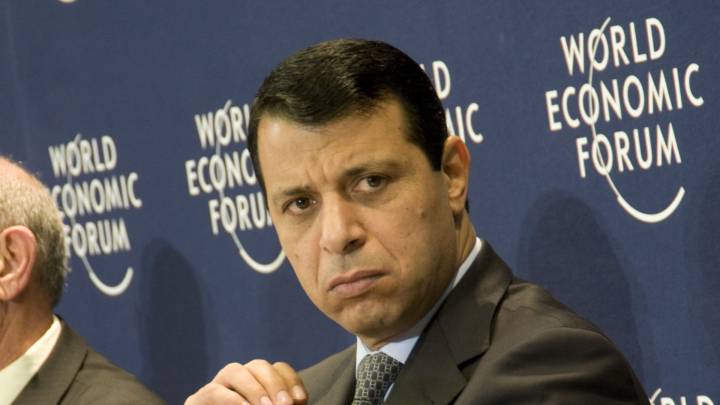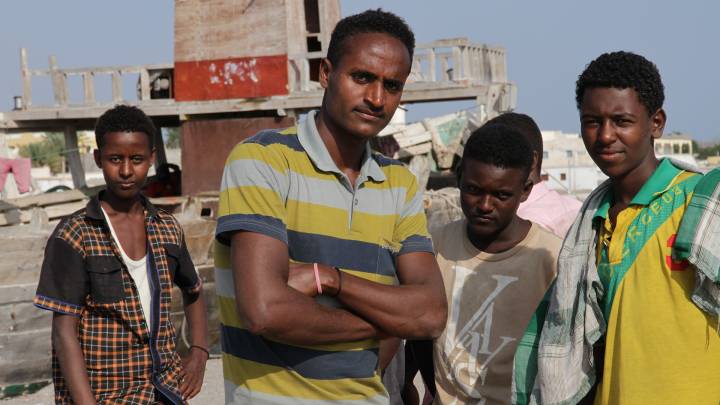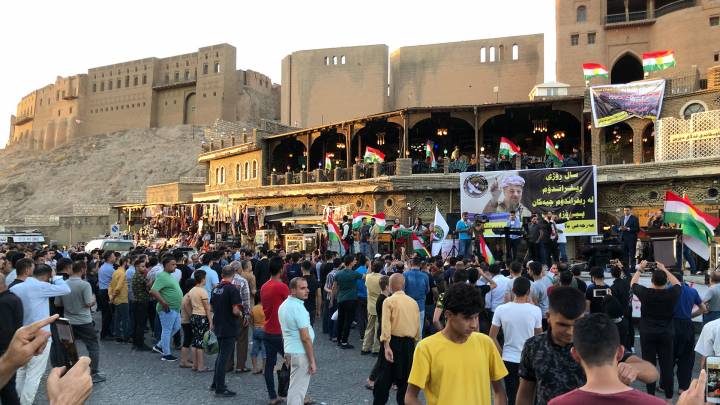The country’s history has been shaped by successive waves of emigration, but the current crisis seems to leave young Lebanese with no hope of return.
While sitting in his living room in West Beirut’s Batrakieh neighborhood, Bill Alhussayni takes time to reflect. His thoughts nowadays often turn to his decision to return to Lebanon 22 years ago. “I wanted my family to reconnect with my homeland, for them to learn the language, to live amid the culture that is so dear to me. Back then it seemed as though the country was finally in a better, more stable position. And that there were business opportunities.”
The now 60-year-old civil engineer fled Lebanon for the USA when the civil war broke out in the mid-1970s. After a brief return to Beirut in the 1980s, he settled in Montreal where he met his wife Rachida, with whom he had two daughters, my sister Lana and me, Ryme.
I have spent nearly all of my 25 years in Lebanon. This is where I have studied and where I began my professional life. Until just three years ago it seemed like there was a future here. But now, like many other Lebanese of my age, I am looking for an opportunity to leave.
We have known for a while now that the country was in a bad shape, but I guess many of us were also in denial. This was until last October’s revolution, when suddenly we could openly discuss the problems we faced living in Lebanon. Real change seemed possible. We hoped for an end to endemic corruption, an end to the paralysing sectarian system, an end to the pollution devastating health of the country. We hoped for the chaos to end. The genie was well and truly out of the bottle and we would not sleep again until our wishes were granted.
However, our demands were left unmet. The political class used all the means at their disposal to hinder the protests, to suppress the protesters and to distract them from the revolution’s demands. Their catastrophic rule continued. Then came the financial crash, in which Lebanese have seen their life savings evaporate as the currency lost 80% of its value. The arrival of the Covid-19 pandemic in Lebanon compounded the situation even further. The statistics make for grim reading. The unemployment rate has surpassed 30%, while food prices have increased by 190%. Many Lebanese parents are unable to put food on the table.
This heady blend of crushed hopes and spiralling economic collapse has been particularly hard to swallow, especially for young people like me. To see our efforts amount to nothing has made many of us feel helpless.
Up to 35% of Lebanese aged between 22 and 50 years old are planing to leave
“Getting a proper education has become a lot more difficult, and then you struggle to find a proper job” says Zeina Zerbé, a Beirut psychologist who was active throughout the popular uprising. For her, “political repression,” combined with the banks’ reluctance to allow people to withdraw their own money, has cemented feelings of frustration and anger among the population. This has all contributed to a fresh wave of emigration, or rather a new generation of immigrants-in-waiting. “Despite their activism, eventually the young couldn’t prevent the collapse.” To live a dignified life, one in which they can realise their full potential, many of the young have decided to leave Lebanon for good.
In a recent interview with The New Arab, immigration lawyer Karim Abdul Samad, who regularly provides specialist advice to Lebanese hoping to leave the country, estimated that around 25 to 35% of Lebanese aged between 22 and 50 years old are currently making plans to emigrate.
Many of them are my friends. There is Noor Hamdan for example, a 25-year-old public administration graduate, who has been looking for a job for almost a year after working in a string of badly paid positions since leaving university. “My friends and I always spoke about the possibility of leaving, but we got more serious in 2019.” Hamdan has recently contacted an emigration consultancy firm to accelerate the process of emigration: “My preferred destination is Canada, but I would also consider somewhere in Europe.”
There is also my friend Fatima Al Mahmoud. She is a 22-year-old journalist, currently earning no more than a few hundred dollars a month, while applying for dozens of jobs abroad everyday. She believes options for her to remain in Lebanon are scarce as local newspapers and other media outlets are fighting for their very survival: “I’m not looking to make a fortune, all I want is some respect and not always to have to worry about how to make ends meet.” These anxieties are shared by many young Lebanese who often work multiple jobs just to scrape by.
Then there is me. My monthly salary is around 1.3 million Lebanese pounds, which used to be the equivalent of roughly $850. Now, because of the currency crash, I earn more like $160, while prices for basic goods have skyrocketed. Without my parents’ help I could simply not survive.
It is hard to say exactly how many Lebanese are currently plotting their escape. What is more unclear still is when exactly they might leave the country, as Lebanon’s only international airport is currently operating at only 10% capacity, and many of the country’s borders remain closed. So for many of us this country in crisis resembles an increasingly crowded departure lounge.
Castro Abdallah, the director of Lebanon’s National Federation of Employees' and Workers' Unions (FENASOL) takes the historical perspective: “Emigration is not a recent occurrence in Lebanon.” The country’s past has witnessed several periods of exodus. The number of emigrants and their descendants is more than twice that of those currently residing in Lebanon itself. War, famine and economic uncertainty have contributed to successive waves of Lebanese seeking their fortunes abroad.
“Around 35,000 students graduate from Lebanese universities annually,” says Abdallah: “33,000 of them instantly apply for either emigration or for job opportunities abroad. This is to be expected in a country that, even before the crisis, provides only around 1,200 new jobs every year.”
In recent years, Lebanon’s economy has relied on pegging the local currency to the US dollar. A strategy which has suppressed domestic production and stymied the creation of new job opportunities within the country.
The subsequent brain drain, in which a high proportion of Lebanon’s best and brightest emigrate, has at the same time become a fundamental part of the Lebanese economic equation. These young people join an already large diasporic community which sends around $7 billion in remittances annually back to Lebanon. These remittances have been a lifeline, keeping an unproductive economy afloat - at least until 2019.
To leave Lebanon would feel like severing a limb
Despite its gravity, the dire macroeconomic picture does not factor significantly in my personal decision-making process. I have a Canadian passport, so leaving is technically straight-forward. The question is do I want to leave my family and friends behind. Do I want to leave my homeland? The place full of friendships, first loves, heartbreaks, successes, setbacks, and all things in between.
Life, I feel, is simply more vibrant here. Friendships more intense. Family lives more intimate. To leave Lebanon would feel like severing a limb. I love this chaotic country. Its small size - I love how it can be crossed by a car in a few hours - is compensated by its many colours and cultures. Weddings and birthdays are always a little wilder here and last a lot longer. I would miss my father’s shish barak - lamb dumplings in yoghurt sauce. I would miss weekends spent in our house in the mountains of Bhamdoun. I would even miss Beirut’s insane traffic.
And of course I would miss my sister, her family, and my new-born nephew, Mahdy, terribly. Then again, imagining him growing up in today’s Lebanon does not sit right. So there is a good chance, he, my sister, and the rest of his family will soon occupy a row of seats in the departure lounge.
My father would be heartbroken, but I think he would understand.
Ryme Alhussayni is a Beirut based journalist, editor and television presenter, whose work has featured in An-Nahar. She also conducts research for the Samir Kassir Foundation, and the UN Entity for Gender Equality and the Empowerment of Women.
The content published on the Lebanon Chronicles channel is supported by the Konrad-Adenauer-Stiftung (KAS). The views expressed in these articles are those of the respective authors and do not necessarily reflect those of the KAS.






